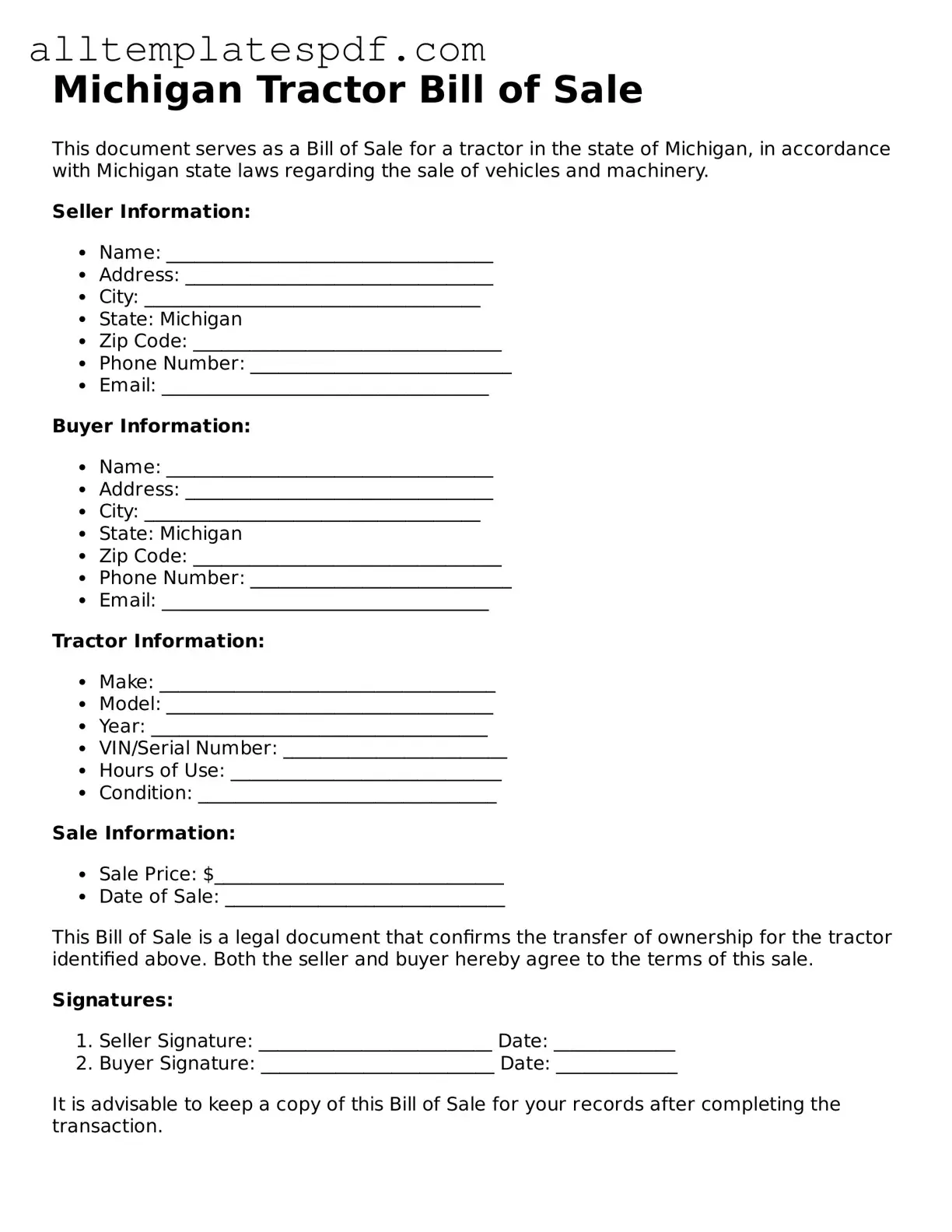Blank Tractor Bill of Sale Template for the State of Michigan
The Michigan Tractor Bill of Sale form is a legal document that records the transfer of ownership for a tractor in the state of Michigan. This form serves as proof of the sale and includes essential details such as the buyer and seller's information, tractor specifications, and the sale price. Ensuring this document is properly filled out is crucial for both parties involved in the transaction.
To get started on your transaction, please fill out the form by clicking the button below.
Open Editor

Blank Tractor Bill of Sale Template for the State of Michigan
Open Editor
Fast and easy form completion
Complete Tractor Bill of Sale digitally — fast and easy.
Open Editor
or
↓ Tractor Bill of Sale PDF Form
